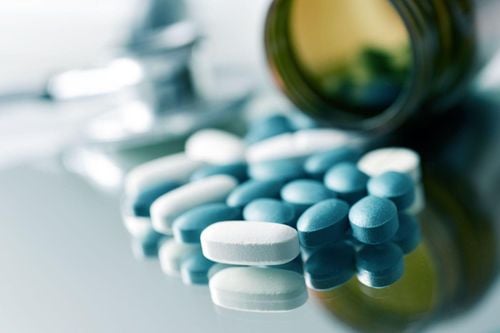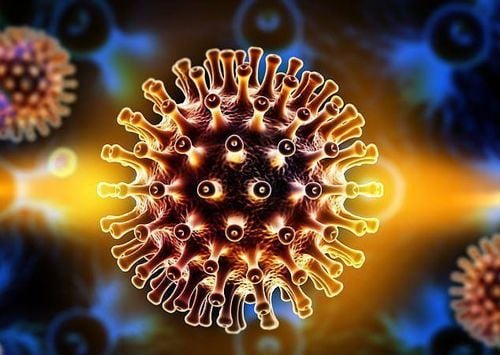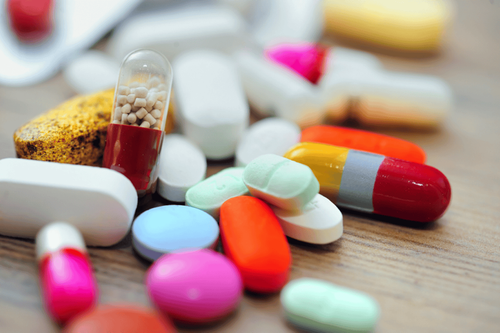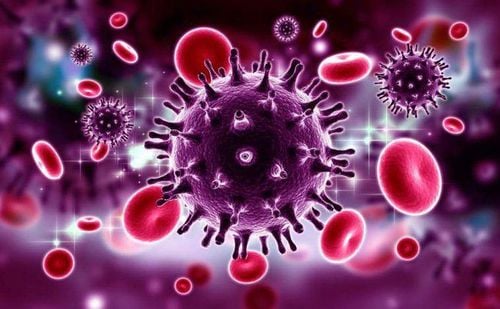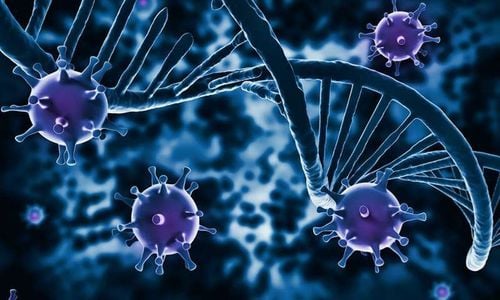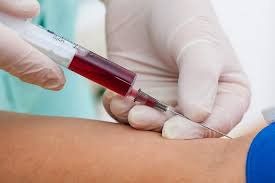This is an automatically translated article.
Establishing a healthy diet and nutrition during HIV treatment will help patients strengthen the immune system and reduce the risk of complications caused by the HIV virus.
1. The importance of nutrition when infected with HIV
Nutrition is the process of digesting, absorbing, converting chemical - physical food and creating nutrients necessary for body activities including growth, development, immunity, labor and health.
For people with HIV disease, the body will be weak and unable to ensure its functions due to the weakened immune system, the patient will experience weight loss, wear and tear, and malnutrition leading to more serious illness. Therefore, adequate nutrition for HIV-infected people is necessary because:
It can help improve quality of life by providing adequate nutrients for the body's needs. Helps strengthen the immune system, fight opportunistic infections such as diarrhea, nausea, fatigue and metabolic disorders common in HIV patients. Help control complications, limit the side effects of HIV drugs. Diet for people with HIV in the first stage is very important, when there are no symptoms, as well as in all later stages of the disease.
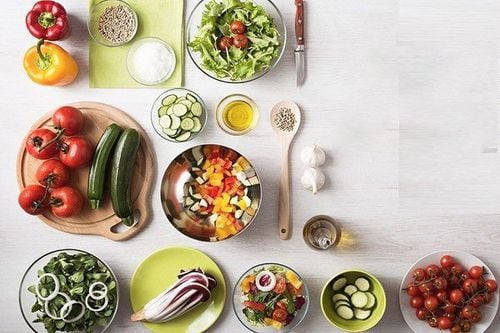
Chế độ ăn uống có vai trò quan trọng đối với bệnh nhân HIV, đặc biệt ở giai đoạn đầu của bệnh
2. Nutrition for patients on HIV treatment
For people who are suffering from this century's disease, choosing a reasonable diet for themselves is very necessary. So what should people with HIV eat to support treatment?
Accordingly, the nutritional needs of HIV-infected people need about 10 - 50% more energy requirements compared to people without HIV. However, depending on the severity and stage of the disease; infected age to establish HIV nutrition for infected people.
2.1.Energy needs of people living with HIV
HIV nutrition in the asymptomatic period: 10% increase in energy requirements compared to HIV-negative people of the same age and sex. Dietary HIV symptomatic period: Need to increase 20-30% of energy requirements compared with HIV-uninfected people of the same age and sex. Nutrition for adults with HIV with symptoms and with opportunistic infections: 50% more energy requirements compared to HIV-uninfected people of the same age and sex. Children infected with HIV : No symptoms increase energy by 10%; symptomatic 20%–30% increase in energy; If there are signs of weight loss, the energy requirement will increase by 50% compared with HIV-uninfected children of the same age and sex.
2.2. Balance between types of food
Types of starchy foods: People with HIV add wholegrain rice, bread, tapioca, cereals, green bananas, millet, corn flour, potatoes, noodles, rice... because of the food form. Carbohydrates make up about a third of a day's food intake. They provide carbohydrates to convert into energy as well as minerals, vitamins and fiber for the body.
Fruits and vegetables: They provide vitamins, minerals and fiber. Try to eat a minimum of five servings of fruits or vegetables each day as they may help prevent cancer and cardiovascular disease.
Fat: Fat is an essential component in the HIV diet for the absence of diarrhea, fat malabsorption. Eat fats like those found in oily fish, nuts, avocados, olive oil, and vegetable oils. The fats found in meat, cheese, butter, and processed foods can raise cholesterol, so they should only be eaten in small amounts.
Vitamins and minerals Vitamins and minerals play an important role in strengthening the immunity of people living with HIV, so this is an essential group for HIV nutrition for patients.
Getting enough of these vitamins and minerals can help people with HIV slow the progression of the disease.
Maintaining a healthy diet will help you cope with HIV and improve your immune system. Don't forget to combine eating with exercise programs to maximize the effects of both.
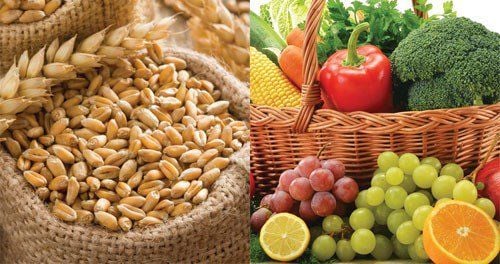
Người bệnh cần cân bằng chế độ ăn uống, duy trì chế độ ăn lành mạnh
2.3. Safe food and beverage processing
Make sure that the foods that the sick person eats or prepares are really safe because the immune systems of people with HIV are very weak. Germs can easily enter the body from unclean food and processing sources. Therefore, when preparing food, it should be noted:
Wash hands thoroughly before preparing food and before eating. Regularly clean the cooking area and tables and chairs with soap and water. Use clean water for cooking and drinking. Wash all vegetables and fruits with clean water. You can add a little salt to clean. Eat cooked and drink boiled. Do not eat raw, rare because it is easy to get gastrointestinal infections. Do not let flies and other animals touch the food. Do not eat leftovers from previous evenings, unless it is stored in a clean, cool place. Avoid foods or drinks that cause stomach upset and diarrhea, including strong tea and coffee...
3. Coping with some complications of HIV
In some specific situations such as diarrhea, prolonged fever, sore mouth... HIV-infected people should eat and drink in the following ways to limit the above risks:
When having diarrhea: Eat several meals a day. During the day, eat soft foods while they are still warm, eat soft fruits, and eat lots of fiber-rich vegetables. Drink lots of water, drink more Oresol solution. When you have a fever: Eat easy-to-digest liquid foods, divide many meals a day, eat soft foods, you can eat porridge while it is still warm, eat soft fruits. Drink a lot of water, drink more Oresol solution (ORS), drink fresh coconut water is also very good because it has vitamin and mineral energy. When you have nausea and vomiting: sit down to eat, just lie down after eating for 1-2 hours. Drink more water after eating. Ask someone else to cook for you so you don't smell the food that makes you feel nauseous. Drink some hot lemon water, drink ginger tea If you have a sore mouth, sore throat or painful swallowing when eating: Eat soft foods, drink cold drinks, soups, vegetables and fruit juices, use a straw to drink. If gingivitis cannot be brushed, rinse your mouth with Bicarbonate solution with water. When sore throat: Squeeze lemon and mix with honey, drink 1 teaspoon as needed. Gargle with salt water or suck on salted lemon or ginger. If constipated: Eat a lot of fruits and vegetables high in fiber such as sweet potatoes, sweet potatoes. Drink plenty of water and walk a lot during the day. Feeling of fullness: Do not drink too much water when eating. Avoid eating foods such as cabbage, beans, onions, cauliflower, ... do not drink carbonated soft drinks. Vinmec International General Hospital offers a package of Examination and Screening for social diseases to help customers detect diseases early and have effective treatment and prevent dangerous complications. The screening package for social diseases at Vinmec is for all ages, both men and women.
To register for examination and treatment at Vinmec International General Hospital, you can contact Vinmec Health System nationwide, or register online HERE.
MORE:
Can a normal blood test detect HIV? HIV window period: How is it treated? When does HIV test give the most accurate results?




